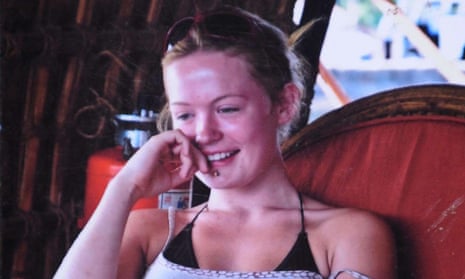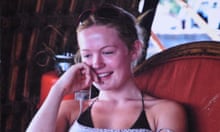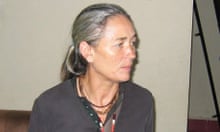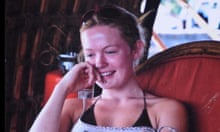The mother of 15-year-old Scarlett Keeling has pledged to continue fighting for justice after two men were cleared of raping and killing her daughter in India in 2008.
Fiona MacKeown, who travelled to Goa, India, for the verdict on her daughter’s death, told the Guardian she was devastated by Friday’s decision, which came after years of delays, including a change of prosecutor. She accused the police of corruption and said she would take the case to a higher court.
Samson d’Souza and Placido Carvalho were alleged to have plied Scarlett with drugs, raped her and left her unconscious on the beach, where she subsequently drowned. But they were acquitted of charges of rape and culpable homicide at Goa children’s court on Friday.
In court, MacKeown had to strain to hear the verdict against the two men. “I couldn’t hear the judge say it,” she said. “But I knew by everybody’s reaction.”
MacKeown had to resort to investigating the case herself to persuade police that Keeling had been the victim of foul play after her death was initially ruled an accidental drowning.
“I didn’t have any expectations. I tried not to because I didn’t want to be disappointed,” she said. “But I’m just reeling at the moment, I’m gutted. It’s been such a long time.
“Right from the beginning I knew that the local police did not want to prosecute the killers. It took a huge effort from me even to get the police to register a complaint. I had some hope that the CBI [the Central Bureau of Investigation, India’s elite national police agency] ... It is clear that they are either incompetent or corrupt, and I don’t believe that they are incompetent.
“I can only say that if international tourists come to Goa and are murdered, they have no hope that justice [will be done] in this system. I don’t believe there has ever been justice for a murdered tourist in this country. The criminal justice system protects the criminals and not the tourists.”
She also called on the judge to make public her reasons for acquitting the men.
“I’d really like to see the judgment. I’d like to see what the judge has to say for herself. I’d really like to see her reasons for acquitting them on everything after the statements clearly said we know about the drugs. So many witnesses said about the drugs, I thought she’d have at least charged them with that.
“I can’t begin to imagine where she was coming from to acquit them of all charges. I want to see her judgment and I want to scrutinise it and then I’m going to show it to the whole world, so it better be good.”
Scarlett’s bruised and half-naked body was found on the popular Anjuna beach in the north of Goa in February 2008. The 15-year-old had been at a Valentine’s Day beach party while the rest of her family had gone travelling.
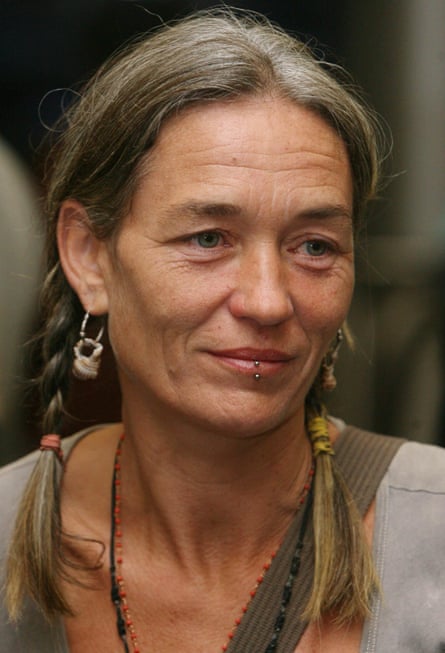
Police initially declared her death an accidental drowning, but MacKeown pushed for a second autopsy. A postmortem examination showed there was ecstasy, cocaine and LSD in the teenager’s body. It also showed 50 cuts and bruises and evidence of sexual assault.
Michael Mannion, a British eyewitness, told police he had last seen the schoolgirl hours before, lying in the car park of nearby Lui’s Bar, with local bartender D’Souza lying on top of her.
D’Souza, 37, and Carvalho, 48, were both charged the following month with culpable homicide, grievous sexual assault, destroying evidence, assault with criminal force with intent to outrage a woman’s modesty, and administering drugs with intent to harm. It was alleged that they plied her with drugs, raped her and left her unconscious to drown on the beach metres from a bar in which the group had spent some hours drinking.
They denied the charges. After the acquittal, D’Souza told reporters outside the court: “I am happy with the verdict. Justice has prevailed.”
The defence lawyer, Marvin D’Souza, said: “There was no evidence against my client from the beginning. The CBI were just going ahead without any evidence. If the CBI decide to take the matter up to the high court, we will see what legal options we have.”
Carvalho, who was acquitted of all the charges, said after the verdict: “There was nothing in the case. We were being framed.”
But MacKeown’s lawyer, Vikram Varma, said the criminal justice system had failed. He said: “It is for the CBI to decide. Facts are that the medical evidence talks of 52 injuries, coke, eyewitness and forensic supports this. But according to the verdict, no one killed her, hurt her or gave her cocaine. The job of the investigation agency is to find out who has done it and to present evidence to support their case. The present criminal justice system has failed.”
A full judgment is yet to be released.
One witness, Murli Sagar, told the court he saw Keeling arrive at the bar at around 3am on the morning of her death, apparently drunk and looking for a lift home. He testified that the teenager had joined the two accused men in the bar’s kitchen, where they took cocaine, before Sagar agreed to drive her home around 5am. As they were leaving, he told the court, D’Souza took charge of Keeling and asked Sagar to leave the pair alone. “The medical evidence confirmed that my daughter was grievously raped and murdered,” MacKeown said.
The case has dragged for eight years through India’s notoriously sluggish justice system, delayed by frequent changes in judges and prosecutors. In that time, MacKeown has had to endure tastleless coverage of her daughter’s drug use and sex life, and close scrutiny of her own lifestyle, and of her decision to allow Keeling to travel alone to Anjuna while the family toured a neighbouring state.
The crime also inspired a Bollywood film – on which MacKeown was never consulted, but later said “was not unkind” in its depiction of her daughter.
But MacKeown said the verdict, delivered in a short hearing on Friday, had left her shocked and angry with the country’s justice system. “There’s never been any justice for a tourist murdered in this country. The attitude is, if you go out at night wearing shorts, you deserve to be raped and murdered,” she said.
MacKeown will return to the UK this week and try to get on with life, without the closure that she hoped a guilty verdict might bring. “I’ve got to go back. I’ve got my other children, and my home, and my work,” she said.
